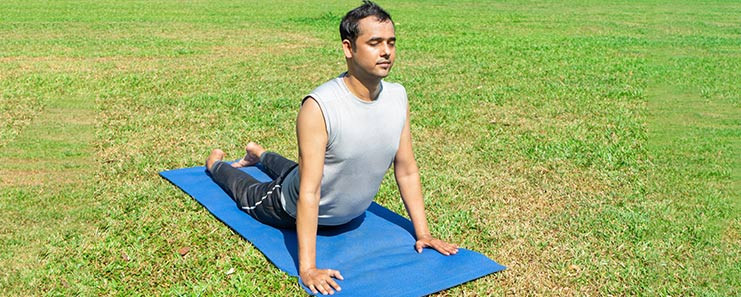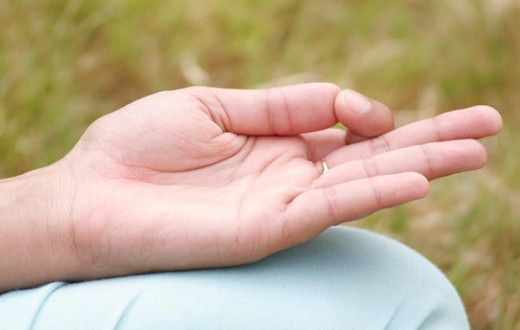By Sejal Shah | Posted: September 24, 2018
You may wonder at times: why am I so depressed?
You’re not alone. Just like you, I, too, have experienced depression. Most people have, whether it’s the so-called milder “everyday” depression or severe clinical depression.
Even the most famous and inspiring personalities like Buddha, Winston Churchill, Abraham Lincoln, and Mahatma Gandhi have encountered and overcome depression. Interestingly, these periods of darkness in their lives often became pivotal moments of self-transformation. It is worth noting that numerous celebrities have faced and triumphed over their battles with depression.
Join a Free workshop on Yoga, Meditation and Breath
On the other hand, we also hear sad stories of depression taking its toll on the lives of many, including famous people like Kate Spade and Anthony Bourdain. Their stories show us that material success has nothing to do with mental well-being.
WHO on depression

Depression is at the top of the list of causes of ill health and disability globally. According to the latest estimates from the World Health Organization (WHO), approximately 280 million people around the world are currently facing depression as of March 31, 2023.
Furthermore, the WHO predicts that by the year 2030, depression will become the leading cause of disability worldwide, affecting an estimated 350 million people.
It is alarming to note that depression affects approximately 1 in 15 people, making it a widespread mental health condition with a substantial impact on an individual's functioning.
What are symptoms of depression?
Depression can manifest in many ways, and individuals might experience a combination of the following symptoms.
- Persistent sadness
- Loss of interest or enjoyment in previously loved activities
- Changes in appetite or weight
- Fatigue or loss of energy
- Sleep disturbances
- Feelings of worthlessness or guilt
- Difficulty in concentration or making decisions
- Restlessness
- Recurrent thoughts of death or suicide
These symptoms can have long-lasting effects and may develop into chronic or recurrent conditions, significantly impacting an individual’s ability to fulfill their daily obligations. In severe cases, depression can even lead to suicide. Shockingly, nearly 1 million lives are lost each year due to suicide, which averages out to approximately 3,000 deaths by suicide every day.
Types of depression
Depending on the number and severity of symptoms, a depressive episode can be categorized as mild, severe, bipolar, or maternal.
- Mild depressive episodes manifest as difficulty in continuing with ordinary work and social activities.
- Severe depressive episodes, on the other hand, manifests as an inability to continue with social engagements, work, or domestic activities.
- Bipolar affective disorder typically consists of both manic and depressive episodes separated by periods of normal mood. Manic episodes involve elevated mood and increased energy, resulting in over-activity, pressure of speech, and decreased need for sleep.
- Maternal depression, affecting women either during pregnancy or postpartum.
10 simple natural remedies for depression
Depression can make everyday life very challenging. When we are depressed, we tend to make things more complicated and often fail to take basic steps to help ourselves. However, there are remedies for depression that can make a significant difference in managing the condition. Healthy lifestyle choices can do wonders to help mild to moderate depression. Whether you have everyday depression or clinical, adopting these habits can begin to make a difference. The severe form of clinical depression may require medical intervention.
1. Maintain your prana (life force) levels
According to yoga and ayurveda, depression can be attributed to a decrease in one’s prana level, also known as life force energy. The smooth flow of prana is essential for the proper functioning of the body and mind. When prana fluctuates, it can lead to a roller coaster of emotions. High levels of prana bring about feelings of joy, enthusiasm, creativity, and vitality. On the other hand, diminished prana can manifest as symptoms of depression, such as a loss of interest in previously enjoyed activities, fatigue, irritability, insomnia, loss of appetite, feelings of worthlessness, poor concentration, self-doubt, and increased anxiety.
There are many sources to increase, maintain and sustain your prana level, and these could be broadly classified into four major categories:
Food
Food plays a crucial role as a source of energy. Choosing a diet that emphasizes pure, sattvic food can foster emotional balance and good health. A diet rich in whole grains, fresh fruits, vegetables, and protein can contribute to a well-nourished body high in prana. Additionally, adopting an anti-inflammatory diet in essential vitamins and minerals supports hormone balance and optimal brain function. It is advisable to limit the intake of processed, preserved, and high-sugar foods to maintain a healthy and balanced diet. In short, a healthy diet at an appropriate time can help increase the prana level in the body, keeping depression away.
Rest
Maintaining healthy sleep habits is one of the effective remedies for depression. Establishing a regular bedtime and morning routine is essential to ensure sufficient sleep, without excessive duration. It is beneficial to go to bed by 10 pm during which the body can experience a deep and restful sleep that rejuvenates the mind and body. Going to sleep very late may result in more restless sleep, increasing the likelihood of experiencing restlessness and emotional distress during the night. Waking up before sunrise can be advantageous as the mind is refreshed, calm, and serene as at this time, there is a predominance of purity or sattva in the mind and atmosphere. Sleeping beyond 6:00 a.m. can lead to blockages in the channels of communication, resulting in a sluggish mind, low moods, and diminished communication between the heart, soul, and mind.
Breath

Breath is an incredibly powerful and abundantly available resource that can have a profound impact on our prana level. There is a strong connection between our breath and emotions. How we feel directly affects our breathing and conversely, the way we breathe has a significant influence on our emotional state. Taking deeper, softer, gentle breaths has a calming and pacifying effect on our mind. Sudarshan Kriya is a dynamic breathing technique that consists of a perfect rhythm that incorporates ancient breathing techniques in a dynamic pattern. Over 65 independent studies reveal the numerous health benefits of the combination of pranayamas and Sudarshan Kriya, demonstrating numerous impressive health benefits.
Learn Sudarshan Kriya at the Online Meditation and Breath Workshop.
Meditation
Since the 1970s, meditation and other stress-reduction techniques have been studied as possible treatments for depression and anxiety. Everyday depression is often rooted in fears about the future and regrets about the past. Meditation connects you to the present moment and that quiet space within us, and thus helps to alleviate many symptoms of situational depression. Learning an easy and effortless meditation technique like Sahaj Samadhi Meditation can be a great blessing, not just for those who suffer from mild depression, but also as a support technique for clinical depression, as indicated by research.
Also try out Guided meditation for positivity. Sit back, relax and let Gurudev Sri Sri Ravi Shankar guide you to a rested peaceful state where you feel filled with positive energy.
2. Get outside
When experiencing depression, it is common to isolate oneself and feel trapped within your negative thoughts and emotions. However breaking free from that cocoon of isolation can be beneficial. Venturing outside and immersing oneself in nature can provide a renewed sense of hope and vitality. Fresh air is a source of revitalizing prana, the life force that ignites enthusiasm and curiosity. Developing the habit of going for walks in your local community parks or gardens can help you reconnect with the gentle forces of nature and experience rejuvenation.
3. Unplug

Engaging in activities that are excessively focused, repetitive, and addictive such as playing video games, using social media, or endlessly browsing the internet, can contribute to a disinterest in real life. Numerous studies have shown how social media can worsen the symptoms of depression. Instead, it can be beneficial to prioritize open communication with family members and loved ones, allowing you to foster stronger relationships with them and seek their support. Alternatively, consider going out and meeting people. Involve yourself in meaningful conversations, offer assistance, share stories, give compliments, have fun together, and cultivate genuine heart-to-heart connections.
4. Help others
According to Gurudev Sri Sri Ravi Shankar, constantly thinking about oneself, with a mindset of ‘what about me’, is a sure mantra to depression. However, shifting the focus to serving others with the thinking ‘what can I do for others’, can bring a higher perspective to life, helping to gradually come out of depression. When we actively help and witness the positive impact we make on others' lives, it brings immense contentment and joy. It revitalizes our life with a renewed sense of purpose and direction.
5. Stretch and exercise daily

Consider some form of exercise daily. Exercise is good for both your physical and mental health. Establishing a regular exercise routine will help you maintain a healthy weight and reduce your stress levels, important for someone with depression. Stress, both at work and home, can increase feelings of depression, and stress is part and parcel of the modern lifestyle. It cannot be avoided. Instead, it is important to learn to manage stress in your daily life. Yoga is a boon for both physical and mental health conditions. Check out some yoga classes at the Art of Living centre near you, or go for a yoga retreat and learn to stretch and breathe deeply.
6. Undertake Craniosacral Therapy to release blockages
Craniosacral Therapy can help release physical and emotional blockages by gently manipulating the craniosacral system which includes the skull, spine, and sacrum. This therapy leads to significant improvements in the daily functioning of people with depression, who often report finding their true self again after the therapy.
7. Experience sunshine therapy
Exposure to sunlight reduces the symptoms of depression by increasing serotonin production and replicating the effects of natural Vitamin D.
8. Use essential oils
Inhaling or applying oils like lavender, bergamot and chamomile may improve mood, reduce mild to moderate depression and promote relaxation.
9. Natural antidepressants
Narayana Kalpa by Sri Sri Tattva is known to alleviate anxiety, stress, sleeplessness and restlessness. Although it is recommended to be taken under the prescription of a qualified Nadi Vaidya (Ayurvedic physician).
10. Follow self-care
Be patient and compassionate with yourself. For someone with depression, even the smallest tasks may seem impossible. On some days, if you can’t find the energy to go for a walk, then just stand outside for a little while and get some fresh air. If you can’t make a healthy meal for yourself, try to eat a piece of fruit. If you are finding yourself unable to sleep, consider learning meditation or other relaxation techniques. If you are sleeping all the time, consider and find out ways to spend less time in bed.
Conclusion
And know for sure that you are not alone. Having faith that there is some higher power that is taking good care of you will help to ease your battle against depression. Also, know that you are very much needed in this world. With all its infinite possibilities, this life is a gift that can become a fountain of joy and happiness, not just for yourself but for many others as well.
Take care!
This content is not intended to be a substitute for professional medical advice, diagnosis or treatment. Always seek the advice of your physician or other qualified health provider with any questions you may have regarding a medical condition.
By Sejal Shah, E-YRT 500 Sri Sri Yoga Teacher, YACEP, Art of Living Teacher, NYU Post Graduate Medical School approved Yoga-CME retreat facilitator, Mind-Body Wellness Writer, Homeopath
Related link
Feeling Under the Weather? Try These 5 Natural Ways to Fight Depression and Anxiety






































